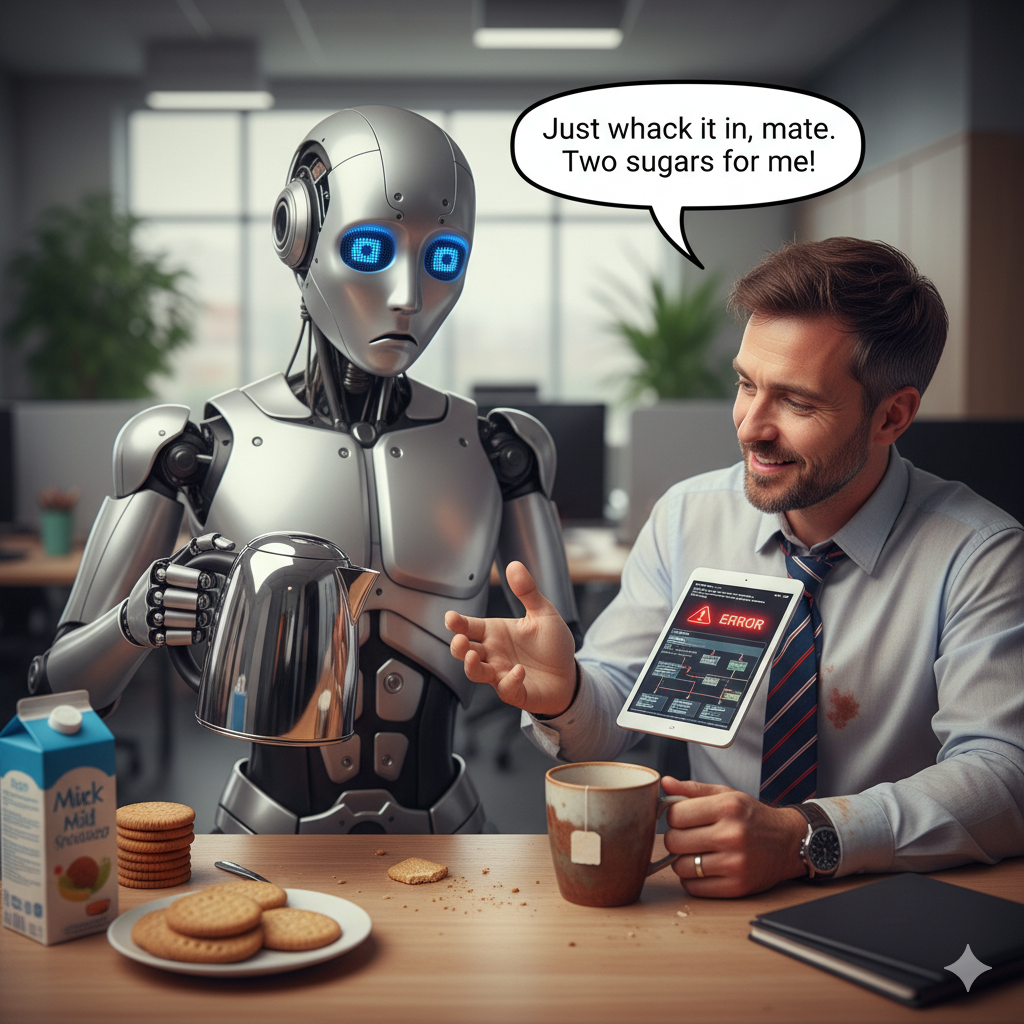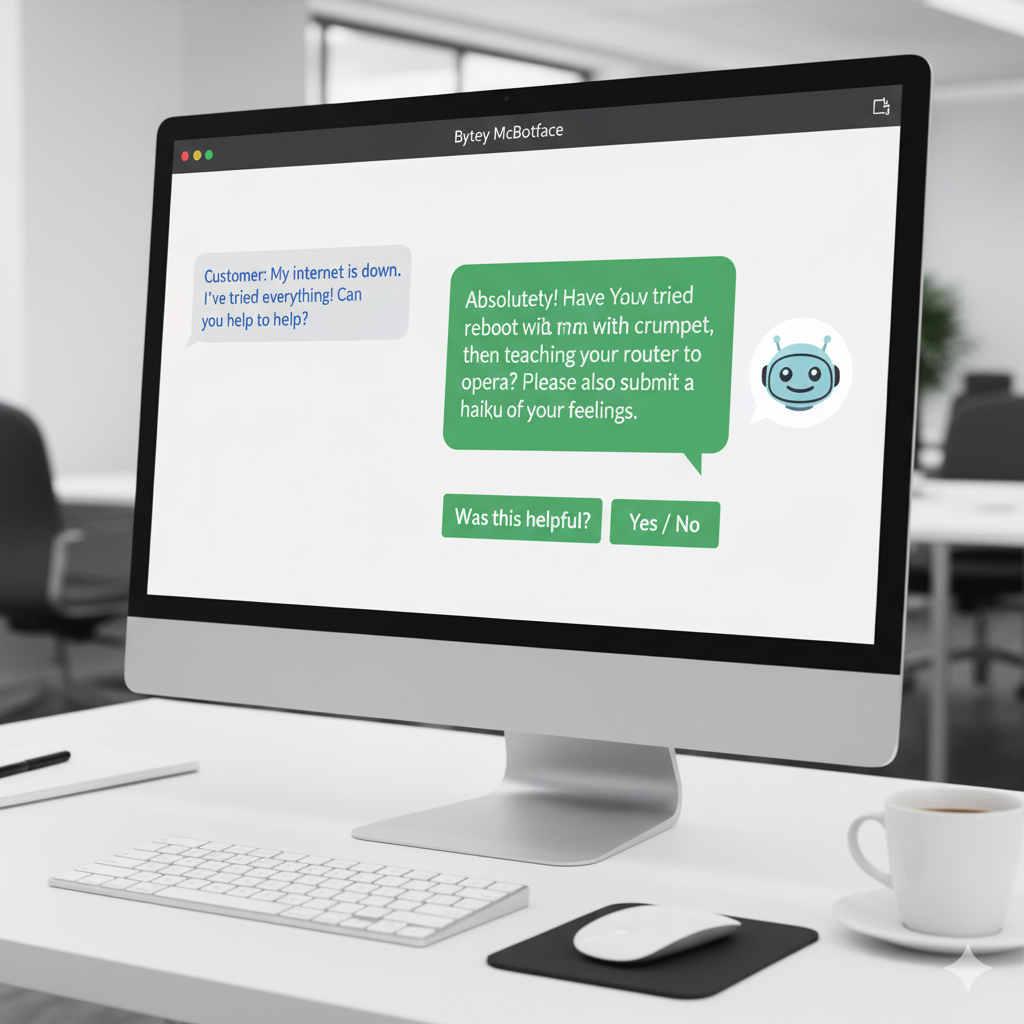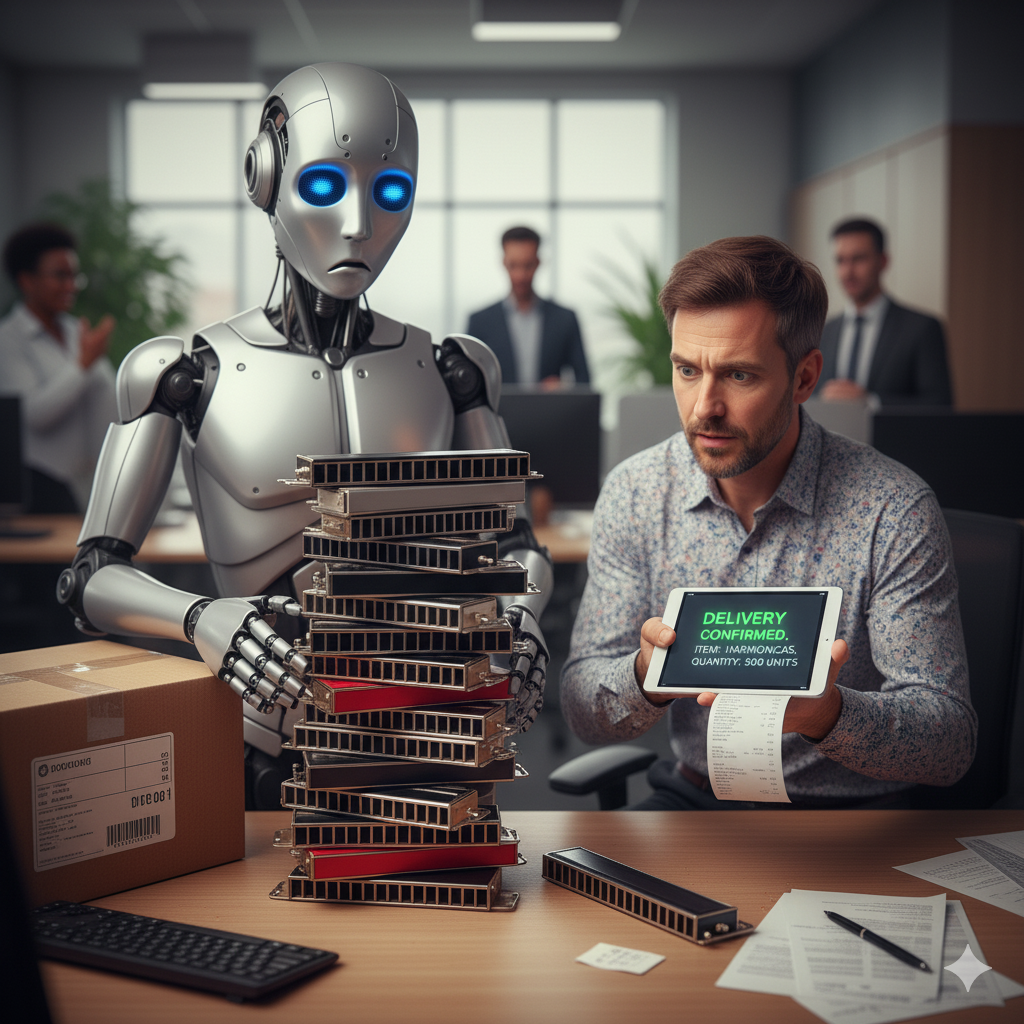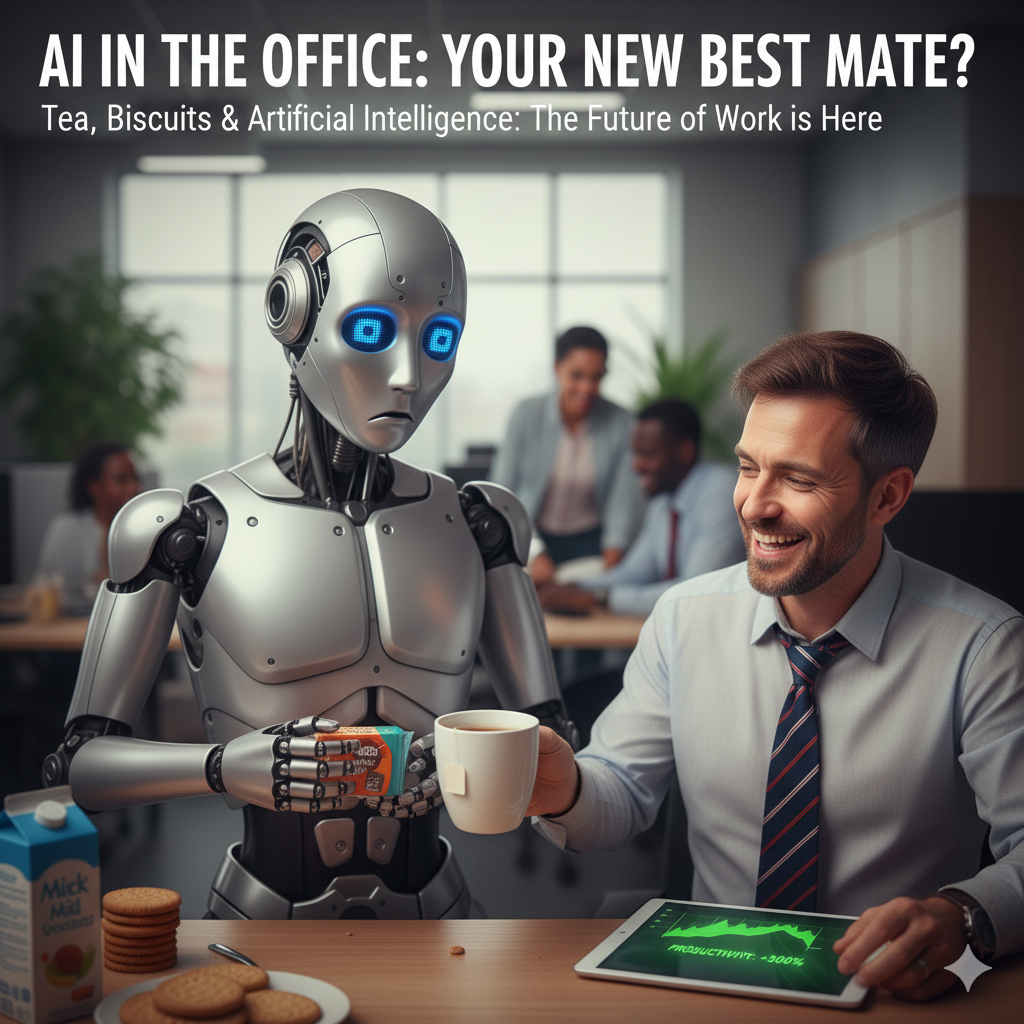Right then, buckle up buttercups, because we’re about to dive into the wonderfully weird world of Artificial Intelligence in the workplace. And no, I don’t mean Brenda from accounts who still uses a fax machine – though that’s a whole different kind of artificial. We’re talking proper, whizz-bang AI, and how it’s shaking up our daily grind.
The Rise of the Machines (Sort Of)
Remember all those sci-fi films where robots took over the world? Well, thankfully, we’re not quite at the Skynet stage yet. Instead, AI is quietly, and sometimes hilariously, slipping into our offices, factories, and even our tea rooms. From automating repetitive tasks to making sense of mountains of data, AI is quickly becoming the digital colleague you never knew you needed. Or, perhaps, the one you’re slightly suspicious of because it never seems to need a biscuit break.

One of the biggest boons of AI is its ability to take on the truly soul-crushing tasks that make us question our life choices. Think about it: data entry, scheduling, sifting through emails – these are the office equivalent of cleaning out the u-bend. But now, AI can handle them with unwavering enthusiasm (or, at least, an algorithm that doesn’t complain). This frees up humans to do the stuff we’re actually good at: problem-solving, creativity, and pretending to be busy when the boss walks past.
AI: Your New, Slightly Robotic, Best Mate
Let’s be honest, we all have that one colleague who’s an absolute whizz at spreadsheets, but a bit of a damp squib when it comes to social small talk. Well, imagine that, but without the awkward Christmas party conversations. That’s a bit like AI. It’s incredibly good at its job, relentlessly efficient, and never judges you for having a second (or third) custard cream.

Take, for example, customer service. AI-powered chatbots are now the first port of call for many enquiries. They can answer common questions faster than you can say “transfer me to a human,” and they don’t get flustered when someone asks them the same question for the fifth time. Of course, sometimes you still need a good old human touch, but for the quick fixes, AI is your digital hero. You can learn more about how AI is transforming customer service here.
The Humorous Side of AI Mishaps
Now, it’s not all perfectly streamlined efficiency. Sometimes, AI can be a bit… well, daft. There are countless tales of AI getting things gloriously wrong, leading to more than a few chuckles around the water cooler. From autocorrect fails on an industrial scale to chatbots confidently spouting absolute nonsense, AI’s learning curve can be a source of endless amusement.

One example could be an AI attempting to order office supplies: Successfully ordering 500 harmonicas instead of 500 staplers. Imagine the look on the boss’s face when the delivery arrived! While rare, blips serve as a gentle reminder that for all its cleverness, AI still needs a bit of human oversight – especially when musical instruments are involved.
The Future is Now (and it’s a bit robotic)
So, what does the future hold? Are we all going to be replaced by glorified toasters that can write quarterly reports? Unlikely. What’s far more probable is a world where humans and AI work together, each playing to their strengths. AI will handle the repetitive, data-heavy tasks, allowing us to focus on the creative, strategic, and distinctly human aspects of our jobs.
Think of AI as a very clever, very fast intern who never complains and doesn’t need to be paid in gin and tonics. It’s a tool to augment our abilities, not replace them. And if you’re worried about your job security, remember this: while AI can process information at lightning speed, it can’t come up with a genuinely witty retort in a team meeting, nor can it truly appreciate a good brew. So, your ability to make a decent cuppa is safe for now.
The integration of AI into the workplace is an ongoing journey, and as it evolves, so too will our understanding of its potential. It’s an exciting time, full of innovation, and perhaps a few more accidental harmonica orders. For more insights into the broader impact of AI on the economy and jobs, check out this article from the Bank of England: here.
In conclusion, AI in the workplace isn’t some looming threat from a dystopian novel. It’s a powerful tool that, when used wisely, can make our jobs more efficient, more interesting, and dare I say, even more fun. Just remember to keep an eye on its ordering habits, especially around musical instruments.






No responses yet